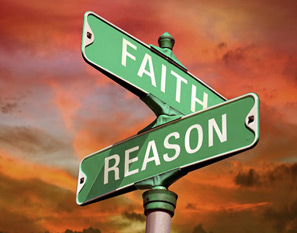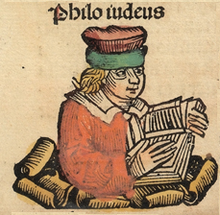Erasmus: Recognition of the fall, and Redemption
Desiderius Erasmus is a man the textbook described as depressed all of his life, a believer in free will, author of the book The Praise of Folly, critical of the organized church, complimentary of the simple life Jesus lived, and an observer of the world (95-97). At first glance, Erasmus sounds just kind of sad. He was depressed, “fond of pointing out mistakes,” and disturbed by certain things about the church, such as how bishops became rich and famous. Erasmus appears to focus on the negative. But, I think what this informs us about is the fall of humans. Erasmus reasons that “anything created by humans could not be perfect.” He also discusses in his book, The Praise of Folly, that those who are “fools” are happier, able to live and act on their true feelings, and do not fear death. His book implies that those who are not “fools” are unhappy, incapable of making good decisions without the pressure of religious doctrines, etc. In other words, again Erasmus is informing us about the fall of man, the imperfections, the inconsistencies of our nature.
However, that is not all there is to Erasmus’ contribution to history. Erasmus talks about following Jesus’ example, therefore admitting that he approves of Jesus’ simple life and thinks there is value in the way He lived and set the example. I think by telling people to look at Jesus as an example, Erasmus is admitting that he believes there is more than the human brokenness and fallen state (95). I think he is admitting that we can be redeemed and don’t have to continue living in a life of ignorance. His ideas are further promoted when we examine his thoughts on free will versus pre-destination. Erasmus writes to someone who might believe in pre-destination:
“Doesn’t the reader of such passages ask: why do you [God] make conditional promises, when it depends solely on your will? Why do you blame me, when all my works, good or bad, are accomplished by you, and I am only your tool?… Why bless me, as if I had done my duty, when everything is your achievement? Why do you curse me, when I have merely sinned through necessity?”
What I really like about Erasmus is that he doesn’t seem to sit in this fallen idea and just wallow in it. Rather, he looks to scriptures and says, basically, “I see where God says we get to choose whether we want to do what is good or what is evil.” In this way, I believe Erasmus teachers us about Redemption. Through scripture, through looking at the simple life of Jesus Christ, we can change our ways. We can choose to make decisions that are for the good. One example of this recognition of the fall, but use of redemption is actually in Erasmus’ life. The textbook tells us that all of his life he struggles with depression. And yet, when the book talks about the disagreeing views of Erasmus and Martin Luther, it says that Erasmus was respectful, kind, and conciliatory throughout his debates with Martin Luther. Martin Luther on the other hand is described as mean, disrespectful, and dogmatic. So although his depression could have resulted in excuses for ugly behavior, Erasmus chooses redemption. It appears to me that he chooses to reflect Christ in his responses.


